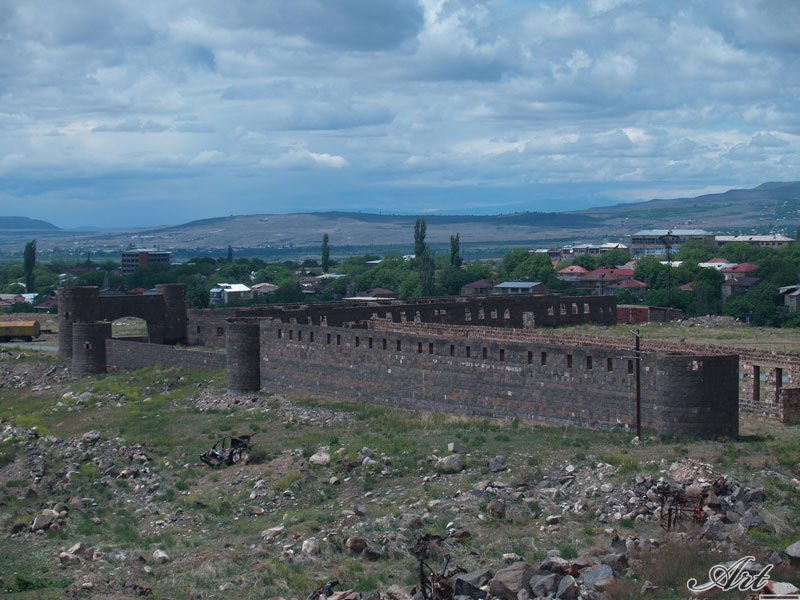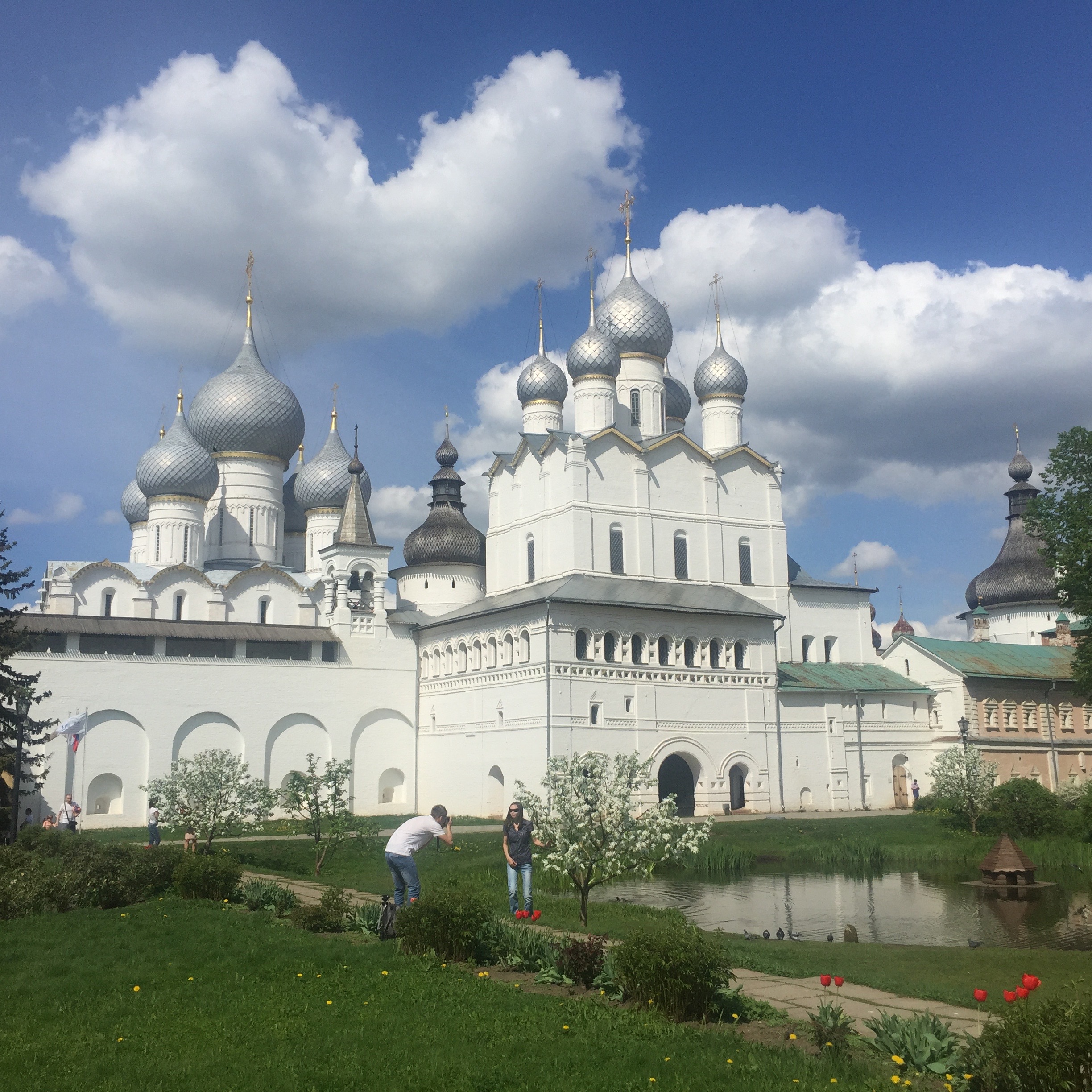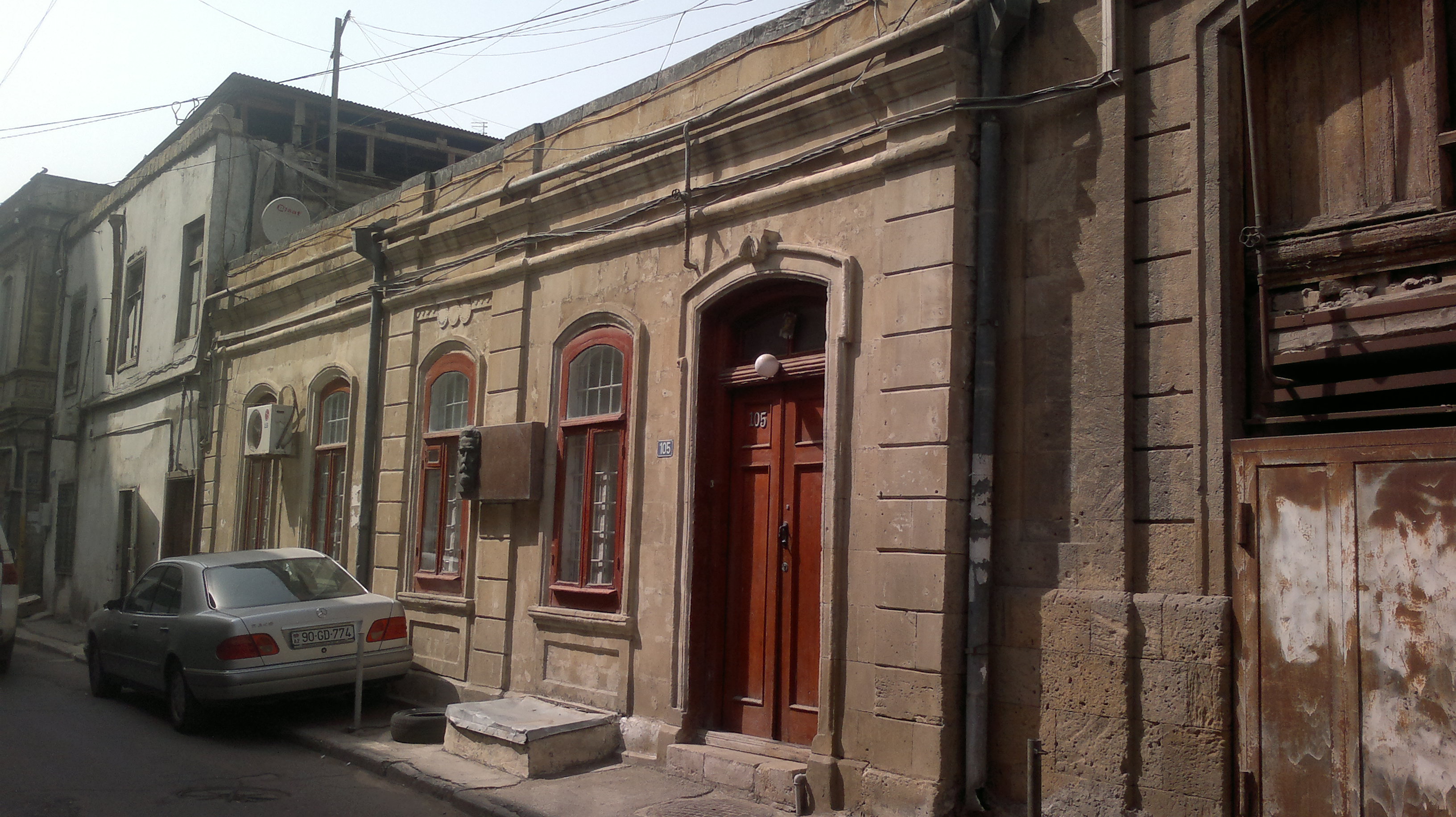|
Hanafi Teregulov
Hanafi Teregulov or Muhammed Hanafi Teregulov (b. 27 Novomber 1877, Tiflis, Tiflis Governorate, Russian Empire - d. 18 December 1942, Baku, Azerbaijan Soviet Socialist Republic, USSR) was an Azerbaijani (Tatar origin) opera singer, choirmaster, teacher, revolutionary. Life Born on November 27, 1877, in Tiflis in the family of an impoverished honorary citizen of Tiflis Hasan Safarovich Teregulov and Rabiyya khanum Akmayeva. He studied in the Transcaucasian Teachers Seminary. At the seminary, he and his brother Ali Teregulov became friends with Uzeyir Hajibeyov (1885-1948) and Muslim Magomayev (future Azerbaijani composers). Uzeyir and Muslim married their sisters (Maleyka and Badiguljamal). Tsarism tried in every possible way to instill in the students of the seminary the spirit of loyalty, but nevertheless, among certain circles of seminarians, a revolutionary mood and interest in the ideas of Marxism began to appear. Among this group were the Teregulov brothers. After gradua ... [...More Info...] [...Related Items...] OR: [Wikipedia] [Google] [Baidu] |
Azerbaijan
Azerbaijan (, ; az, Azərbaycan ), officially the Republic of Azerbaijan, , also sometimes officially called the Azerbaijan Republic is a transcontinental country located at the boundary of Eastern Europe and Western Asia. It is a part of the South Caucasus region and is bounded by the Caspian Sea to the east, Russia (Republic of Dagestan) to the north, Georgia to the northwest, Armenia and Turkey to the west, and Iran to the south. Baku is the capital and largest city. The Azerbaijan Democratic Republic proclaimed its independence from the Transcaucasian Democratic Federative Republic in 1918 and became the first secular democratic Muslim-majority state. In 1920, the country was incorporated into the Soviet Union as the Azerbaijan SSR. The modern Republic of Azerbaijan proclaimed its independence on 30 August 1991, shortly before the dissolution of the Soviet Union in the same year. In September 1991, the ethnic Armenian majority of the Nagorno-Karabakh region formed the ... [...More Info...] [...Related Items...] OR: [Wikipedia] [Google] [Baidu] |
Ashtarak
Ashtarak (Armenian language, Armenian: ), is a town and urban municipal community in the Aragatsotn Province of Armenia, located on the left bank of Kasagh River along the gorge, northwest of the capital Yerevan. It is the administrative centre of the Aragatsotn province. Ashtarak is an important crossroad of routes for the Yerevan–Gyumri–Vanadzor triangle. The town plays a great role in the national economy as well as the cultural life of Armenia through several industrial enterprises and cultural institutions. It has developed as a satellite town of Yerevan. The nearby village of Mughni is part of the Ashtarak municipality. As of the 2011 census, the population of the town was 18,834. However, as per the 2016 official estimate, the population of Ashtarak is 18,000. The prelacy of the Diocese of Aragatsotn of the Armenian Apostolic Church is headquartered in Ashtarak. Etymology The name of "Ashtarak" is the Armenian language, Armenian word for ''tower'' or ''fortres ... [...More Info...] [...Related Items...] OR: [Wikipedia] [Google] [Baidu] |
Ahmed Agdamski
Ahmed Agdamski ( az, Əhməd Ağdamski) also known by the stage name of Ahmed Bashir oglu Badalbeyli ( az, Əhməd Bəşir oğlu Bədəlbəyli) (January 5, 1884, in Shusha, Elisabethpol Governorate (Russian Empire) – April 1, 1954, in Agdash, Azerbaijan SSR) who was an Azerbaijani opera singer, mugam singer and actor. Biography Ahmadbey Badalbeyli was born on January 5, 1884, in Shusha, Azerbaijan. He attended circles of theater-lovers and participated in national spectacles from his childhood. Scenic activity of the actor began in 1910, with attendance of a theatrical troupe of “Nijat” charity union. He was famous for his performance of women roles in various operas in the early history of Azeri Opera, when women's appearance on stage was strictly forbidden by religion and tradition. But later he began to play male parts, too. Besides all these he also was engaged in pedagogic activity. He was always persecuted because of playing women's parts. Ahmedbey changed his surn ... [...More Info...] [...Related Items...] OR: [Wikipedia] [Google] [Baidu] |
Azerbaijani Opera
Opera in Azerbaijan has a history dating back to the 19th century Russian Empire. History 19th and early 20th centuries. Russian Empire The emergence of opera and ballet in Azerbaijan is associated with the Russian Empire, Imperial Russian period of Azerbaijani history when Azerbaijanis became exposed to European music traditions first-hand. The very first documented performance of an opera in Baku took place in May 1889 when Alexey Verstovsky's opera ''Askold's Grave (opera), Askold's grave'' was staged at a circus arena in Baku (on the site of the current Azerbaijan Carpet Museum building), accompanied by the folk choir of Dmitry Agrenev-Slavyanski. In the early 1900s, opera troupes toured Baku on a yearly basis (except 1901 and 1913), featuring prominent singers of the time such as Natalia Ermolenko-Yuzhina and Antonina Nezhdanova. The Azerbaijan State Academic Opera and Ballet Theater, Opera Theater in Baku was built in 1911. 20th century. Azerbaijani opera The first oper ... [...More Info...] [...Related Items...] OR: [Wikipedia] [Google] [Baidu] |
Saint Petersburg
Saint Petersburg ( rus, links=no, Санкт-Петербург, a=Ru-Sankt Peterburg Leningrad Petrograd Piter.ogg, r=Sankt-Peterburg, p=ˈsankt pʲɪtʲɪrˈburk), formerly known as Petrograd (1914–1924) and later Leningrad (1924–1991), is the second-largest city in Russia. It is situated on the Neva River, at the head of the Gulf of Finland on the Baltic Sea, with a population of roughly 5.4 million residents. Saint Petersburg is the fourth-most populous city in Europe after Istanbul, Moscow and London, the most populous city on the Baltic Sea, and the world's northernmost city of more than 1 million residents. As Russia's Imperial capital, and a historically strategic port, it is governed as a federal city. The city was founded by Tsar Peter the Great on 27 May 1703 on the site of a captured Swedish fortress, and was named after apostle Saint Peter. In Russia, Saint Petersburg is historically and culturally associated with t ... [...More Info...] [...Related Items...] OR: [Wikipedia] [Google] [Baidu] |
Huseyngulu Sarabski
Huseyngulu Sarabski ( az, Hüseynqulu Sarabski), born Hüseynqulu Malik oğlu Rzayev (20 March 1879 – 16 February 1945), was an Azerbaijani opera singer (tenor), composer, playwright, stage actor, theatre director, and musician (tar). Early life Sarabski was born to poor parents in Baku (then part of the Russian Empire, now capital of Azerbaijan) on Nowruz Eve. At a young age, he was sent to a mullah to study the Koran. Unable to overcome the language barrier and having received severe beatings from the mullah, Huseyngulu managed to convince his parents to let him quit. In 1891, at the age 12, he watched a theatrical performance for the first time. It was staged by amateur actors and called ''Khan Sarabi'' adapted from Mirza Fatali Akhundov's play ''Sarguzasht-i vazir-i Khan-i Lankaran''. Young Huseyngulu enjoyed the performance and later chose the pseudonym Sarabski reflecting on his first encounter with theatre. As a teenager, he enrolled in Russian night courses for the poor f ... [...More Info...] [...Related Items...] OR: [Wikipedia] [Google] [Baidu] |
Rostov, Yaroslavl Oblast
Rostov ( rus, Росто́в, p=rɐˈstof) is a town in Yaroslavl Oblast, Russia, one of the oldest in the country and a tourist center of the Golden Ring. It is located on the shores of Lake Nero, northeast of Moscow. Population: While the official name of the town is Rostov, it is popularly known to Russians as Rostov Veliky ( rus, Ростов Великий, ''Rostov the Great'') to distinguish it from the much larger city of Rostov-on-Don. The name of the town railway station is Rostov Yaroslavsky, due to its location in Yaroslavl Oblast. History Rostov was preceded by Sarskoye Gorodishche, which some scholars interpret as the capital of the Finnic Merya tribe, while others believe it was an important Viking trade enclave and fortress guarding the Volga trade route. It is known from Norse sources as or . Scythians also settled there. These different ethnicities, such as the Vikings, Scyths, Slavs and Finns, were likely the ancestors of many of today's people in that ... [...More Info...] [...Related Items...] OR: [Wikipedia] [Google] [Baidu] |
Vladikavkaz
Vladikavkaz (russian: Владикавка́з, , os, Дзæуджыхъæу, translit=Dzæwdžyqæw, ;), formerly known as Ordzhonikidze () and Dzaudzhikau (), is the capital city of the North Ossetia-Alania, Republic of North Ossetia-Alania, Russia. It is located in the southeast of the republic at the foothills of the Caucasus Mountains, situated on the Terek River. The city's population was 311,693 as of the Russian Census (2010), 2010 Census. As a result, Vladikavkaz is one of the most populous cities in the North Caucasus region. The city is an Industrial sector, industrial and transport, transportation centre. Manufactured products include processed zinc and lead, machinery, chemical substance, chemicals, clothing and food products. Etymology From 1931 to 1944 and from 1954 to 1990, its name in both Russian and Ossetic languages was ''Ordzhonikidze'' () (after Grigory Ordzhonikidze, Sergo Ordzhonikidze, a Georgian Bolshevik), and from 1944 to 1954 it was officially called ... [...More Info...] [...Related Items...] OR: [Wikipedia] [Google] [Baidu] |
Grozny
Grozny ( rus, Грозный, p=ˈgroznɨj; ce, Соьлжа-ГӀала, translit=Sölƶa-Ġala), also spelled Groznyy, is the capital city of Chechnya, Russia. The city lies on the Sunzha River. According to the 2010 census, it had a population of 271,573 — up from 210,720 recorded in the 2002 census, but still only about two-thirds of 399,688 recorded in the 1989 census. It was previously known as (until 1870). Names In Russian, "Grozny" means "fearsome", "menacing", or "redoubtable", the same word as in Ivan Grozny ( Ivan the Terrible). While the official name in Chechen is the same, informally the city is known as "" (""), which literally means "the city () on the Sunzha River ()". In 1996, during the First Chechen War, the Chechen separatists renamed the city Dzhokhar-Ghala ( ce, Джовхар-ГӀала, Dƶovxar-Ġala), literally Dzhokhar City, or Dzhokhar/Djohar for short, after Dzhokhar Dudayev, the first president of the Chechen Republic of Ichker ... [...More Info...] [...Related Items...] OR: [Wikipedia] [Google] [Baidu] |
Mashadi Azizbeyov
Mashadi Azizbey oghlu Azizbeyov, also spelled Azizbeyov ( az, Məşədi Əziz bəy oğlu Əzizbəyov; russian: Мешади Азиз-бек оглы Азизбеков; January 6, 1876 - September 20, 1918) was a Soviet revolutionary of Azerbaijani origin, leader of the revolutionary movement in Azerbaijan, one of the first Azeri Marxists, Provincial Commissioner and Deputy People's Commissar of Internal Affairs, gubernial commissar for Baku. He was one of the 26 Baku Commissars. Azizbeyov became a member of Russian Social Democratic Labour Party and one of the leaders of Muslim Social Democratic Party. After the October Revolution he joined the Baku Comissars. As the Baku Commune was voted out of power in July 1918, Azizbeyov and rest of the Commissars abandoned Baku and fled across the Caspian Sea. However they were captured by anti-Soviet forces. On the night of September 20, Azizbeyov was executed by a firing squad in a remote location between the stations of Pereval and Akh ... [...More Info...] [...Related Items...] OR: [Wikipedia] [Google] [Baidu] |
Maxim Gorky
Alexei Maximovich Peshkov (russian: link=no, Алексе́й Макси́мович Пешко́в; – 18 June 1936), popularly known as Maxim Gorky (russian: Макси́м Го́рький, link=no), was a Russian writer and socialist political thinker and proponent. He was nominated five times for the Nobel Prize in Literature. Before his success as an author, he travelled widely across the Russian Empire changing jobs frequently, experiences which would later influence his writing. Gorky's most famous works are his early short stories, written in the 1890s (" Chelkash", " Old Izergil", and " Twenty-Six Men and a Girl"); plays '' The Philistines'' (1901), '' The Lower Depths'' (1902) and '' Children of the Sun'' (1905); a poem, " The Song of the Stormy Petrel" (1901); his autobiographical trilogy, '' My Childhood, In the World, My Universities'' (1913–1923); and a novel, ''Mother'' (1906). Gorky himself judged some of these works as failures, and ''Mother'' has ... [...More Info...] [...Related Items...] OR: [Wikipedia] [Google] [Baidu] |
Alexander Ostrovsky
Alexander Nikolayevich Ostrovsky (russian: Алекса́ндр Никола́евич Остро́вский; ) was a Russian playwright, generally considered the greatest representative of the Russian realistic period. The author of 47 original plays, Ostrovsky "almost single-handedly created a Russian national repertoire." His dramas are among the most widely read and frequently performed stage pieces in Russia. Biography Alexander Nikolayevich Ostrovsky was born on 12 April 1823, in the Zamoskvorechye region of Moscow, to Nikolai Fyodorovich Ostrovsky, a lawyer who received religious education. Nikolai's ancestors came from the village Ostrov in the Nerekhta region of Kostroma governorate, hence the surname. Later Nikolai Ostrovsky became a high-ranked state official and as such in 1839 received a nobility title with the corresponding privileges. His first wife and Alexander's mother, Lyubov Ivanovna Savvina, came from a clergyman's family. For some time the family lived in ... [...More Info...] [...Related Items...] OR: [Wikipedia] [Google] [Baidu] |








